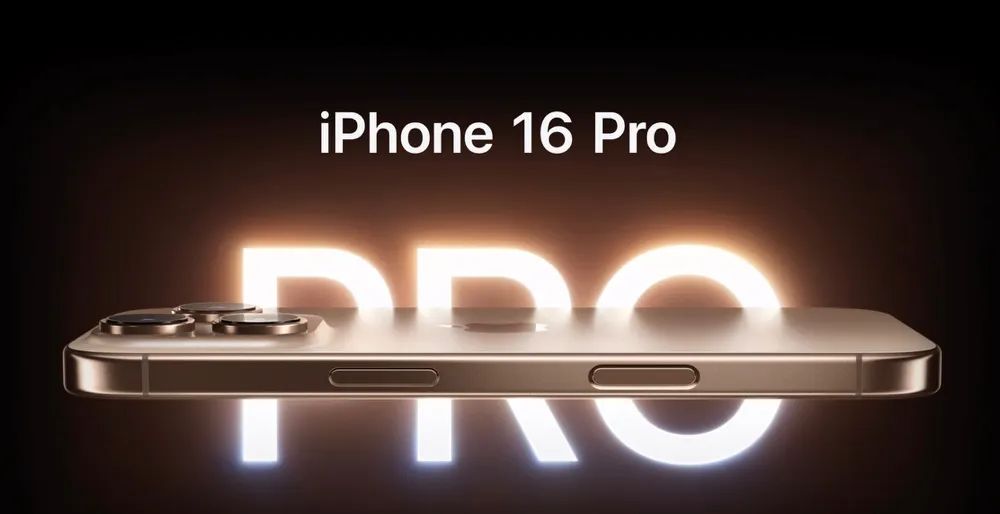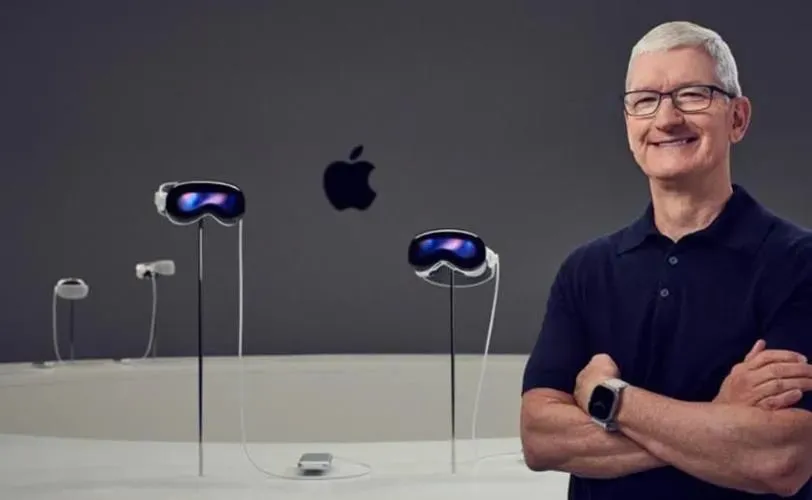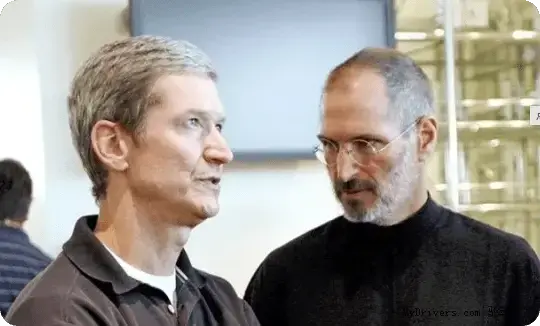Cook can't escape the circle drawn by Jobs
![]() 09/12 2024
09/12 2024
![]() 635
635

Apple, which redefined mobile phones, may have really faded away.
This year's Apple autumn press conference can still be described as "lackluster" and "boring." Overall, this press conference mainly focused on updating two important pieces of information: first, the usual launch of hardware products such as the iPhone 16 series and Apple Watch, and second, the continued enrichment of Apple's "AI" story.
The relevant details of the former have been mostly revealed before the conference. For example, the much-anticipated iPhone 16 series has only two major changes in configuration compared to the previous-generation iPhone 15 series: one is the processor upgrade, and the other is the addition of a "camera control" button, which may also be the "biggest innovation" of the iPhone 16 series in terms of hardware.
Additionally, its price is roughly the same as the iPhone 15 series, starting at 5,999 yuan; it offers higher color saturation, a larger screen size, and longer battery life compared to the previous generation. Basically, it continues the old mantra of "more quantity for the same price," "thinner, larger, more power-efficient, and with a new case," taking small steps forward.
Apple Intelligence was already introduced at the Apple Worldwide Developers Conference (WWDC) three months ago, so it's nothing new. Apple focused on introducing the implementation of "AI" on the iPhone 16, such as in text, images, Siri, and related scenarios. From the moment Apple AI debuted, Apple has been using its narrative prowess to try to redefine "AI" in the same way it defined mobile phones, and it has even taken a "shortcut," given that the initials of Apple Intelligence happen to be "AI."
According to Apple's timeline, domestic users will have to wait until 2025 to use the Chinese version of Apple's "AI," and its services will be provided by cooperating local large model vendors. Before that, Apple must pass regulatory review, a hurdle that Tesla has also had to overcome.
Even so, Apple CEO Tim Cook claims that the iPhone 16 is a product designed specifically for Apple Intelligence, expanding the boundaries of the iPhone's capabilities and ushering in an exciting new era.
In Cook's vision, Apple AI may only be slightly less important than the Apple Vision Pro. The latter is often interpreted as Cook's "One more thing" after taking over as CEO of Apple from Jobs 12 years ago, comparable to Jobs' iPhone 4. Cook hopes to usher in the next era of the iPhone based on XR (mixed reality). He proudly proclaimed that the Vision Pro officially marks the beginning of the "Spatial Computing Era," alongside the personal computing era ushered in by the Macbook and the mobile computing era by the iPhone.
However, the Vision Pro has disappointed both Cook and the market. Given its lack of groundbreaking innovation in design, content, and product experience, capital markets have downplayed its performance, and users have been hesitant to open their wallets. IDC predicts that total sales of Apple Vision Pro will not exceed 500,000 units in 2024.

Famous Apple analyst Ming-Chi Kuo suggests that the success of Apple's wearable devices hinges on their ability to integrate highly with AI or AIGC. This is something Cook is carefully considering. The iPhone 16 series features a "retro" vertical camera arrangement, which supports simulating the visual effect of human eyes when holding the phone horizontally, allowing for spatial video recording that can be played back on the Vision Pro. In this sense, the iPhone 16 series becomes a production tool for the Vision Pro, justifying the addition of the camera control button.
Cook hopes that Apple AI will usher in the next cycle of the iPhone, which will also serve as a precursor to reigniting interest in the Vision Pro. During the latest earnings call, he confidently reassured outsiders that "Apple Intelligence provides another compelling reason for users to upgrade."
Many professionals believe that this "super upgrade cycle" will materialize with models following the iPhone 17. Consumers may have to wait until 2027 for a truly fresh product. In other words, the iPhone will likely remain uninnovative until the iPhone 19 series. There's still a bit of toothpaste left in the tube, which might squeeze out another year or two, but Cook's tenure is running out, as he has already served beyond his initial contract.
In reality, Android phones, especially domestic brands, have made significant strides in integrating AI with mobile hardware. After the Apple press conference, Honor CMO Guo Rui challenged the market by posting on WeChat Moments, "The era of AI entities has arrived, and there's no need to wait for Apple to learn Chinese." The launch of "iPhone + AI" merely adds momentum to the AI phone wave, but how far it can carry the industry will depend on the ingenuity of each player.
Nonetheless, Apple has caught up with this wave. With high expectations from all sides, Apple finally made moves in AI, leading some analysts bullish on Apple to predict that global shipments of the iPhone 16 could exceed 90 million units.
However, a market prediction by "Jobs' disciple" Lei Jun, now a disciple of Musk, may cause concern for Cook. In a recent interview, Lei Jun stated that the global smartphone war is over, with only Samsung and Apple remaining. But in China, there are six players, and in Africa, there is one, making it impossible for all seven to survive. This suggests that growth in iPhone 16 sales may not materialize in the Chinese market.
Executives love to make predictions, but they're akin to fortune-telling, with some patterns but hard to resist the awakening of variables. For example, on September 10, the same afternoon as Apple's autumn press conference, Huawei officially launched its first and the world's first commercial tri-fold phone, the Mate XT Masterpiece, priced starting at 19,999 yuan, with over 5 million reservations to date. In the public's view, this is Huawei taking on Apple head-on or even sniping at it. But it can also be seen as Huawei's innovative response to the increasingly competitive mobile phone market by delving into uncharted territories in technology products.

This is precisely what Apple has lost. When Cook first took over as CEO of Apple, he insisted that Apple's DNA had not changed and that the company's mission was to create great products for consumers. However, Apple has transitioned from a leader in cutting-edge technological innovation to a follower, with Jobs' innovative spirit replaced by Cook's pragmatism. For example, Apple's flagship product, the iPhone, has gradually acquired labels such as incremental updates, copying Android, and lack of innovation, all of which are visible to and concerning to Apple fans, prompting them to voice their criticisms.
Lan Xi once said, "In business history, too many companies have risen to greatness only to decline, often starting from the moment they became adept at and focused solely on execution. Executing technology, fulfilling shareholders' expectations, and meeting management goals – but not creating anything new."
Luo Yonghao is known for his criticisms of Apple, earning him the nickname of Apple's "parent company" when he was making Smartisan phones. In his words, his latest criticism translates to "zero innovation again."
The keyword for Luo Yonghao is also "innovation." For years, this label has been the crown on Apple's head and the golden hoop on Cook's forehead. At the same time, it is also the circle drawn by Jobs for Cook.
Sun Wukong drew a circle around Tang Sanzang twice, each time with countless admonitions, but both times, Tang Sanzang ignored it and wandered outside, only to be captured by demons. Sun Wukong never drew a third circle. He knew that the circle drawn by his golden cudgel could not suppress the demons within Tang Sanzang's heart; Tang Sanzang had his own path, even if it meant suffering outside the circle.
The same is true for the circle drawn by Jobs for Cook. Innovation is a powerful tool, and Jobs' impact on the world was achieved through Apple's products, leveraging this tool. Building a great tech company around the iPhone is Cook's contribution to Apple and its shareholders within the circle drawn by Jobs.
However, it cannot be denied that in terms of hardware, software, and perhaps even the ecosystem, Apple remains as stable as ever. The iPhone continues to be one of the best consumer electronics products on the planet. Currently, there are over 1 billion active iPhone devices worldwide, and Apple's software services ecosystem built around iOS has become the largest source of revenue outside of hardware sales, with the most significant contributor being the much-criticized "Apple Tax."
Cook cannot escape the circle drawn by Jobs, and he has no intention of doing so. It's not that the circle of innovation is impossible to leap out of; it's that he knows what he needs to do and what he is capable of doing.
In 2008, when asked by Fortune magazine about Jobs' successor, Cook replied, "Replace Steve? No. He's irreplaceable!" Three years later, in 2011, he took over as CEO of Apple. Today, Apple has a market value of $3.36 trillion, making it the world's largest company by market capitalization.








